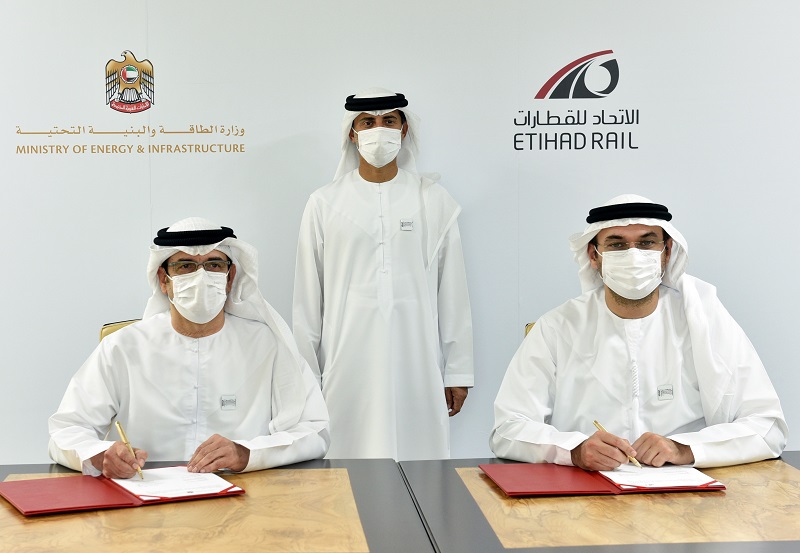The Ministry of Energy and Infrastructure has partnered with Etihad Rail, the developer and operator of the UAE’s National Rail Network, to collaborate on the issuance of safety permits for Stage Two of the UAE’s national rail project.
The agreement was signed at the Ministry’s office in Dubai in the presence of His Excellency Suhail bin Mohammed Faraj Faris Al Mazrouei, Minister of Energy and Infrastructure.
The signing agreement comes as Etihad Rail continues to drive progress on Stage Two of the UAE’s National Rail Network. Across the project’s four packages, Etihad Rail has achieved 34% of overall progress since constructions works commenced in January 2020.
The pace in which progress is continually achieved, provides strong foundations for the incumbent completion of Stage Two, continuing the trend of ensuring the railway embeds leading safety standards and procedures throughout the project.
Commenting on the signing of the agreement, His Excellency Suhail Al Mazrouei said: “The UAE continues to successfully enhance its transportation infrastructure: a key enabler of growth in the UAE’s industrial and service sectors.
“Furthermore, the transport sector delivers wider social and commercial benefits, as well as additional strategic advantages, supporting our nation’s sustainable development objectives. Cumulatively, the industry helps to safeguard the past half-century of growth achieved in the UAE, alongside setting targets for the next fifty years, supporting UAE Centennial 2071 and enabling the UAE’s global leadership across a diverse range of sectors.”
“Etihad Rail continues to forge ahead in the development of the UAE’s transportation sector, which will secure the wellbeing and a quality of life for citizens, residents, and tourists alike. Moreover, their work enhances sustainable development processes, bolstering the UAE’s regional and global standing.”
Stage Two of the UAE’s National Rail Network extends from Al Ghuwaifat on the UAE’s border with Saudi Arabia to Fujairah on the eastern coast. Upon completion, the network will link ports, manufacturing hubs, and cities in the UAE, alongside connecting into the wider GCC rail network.

